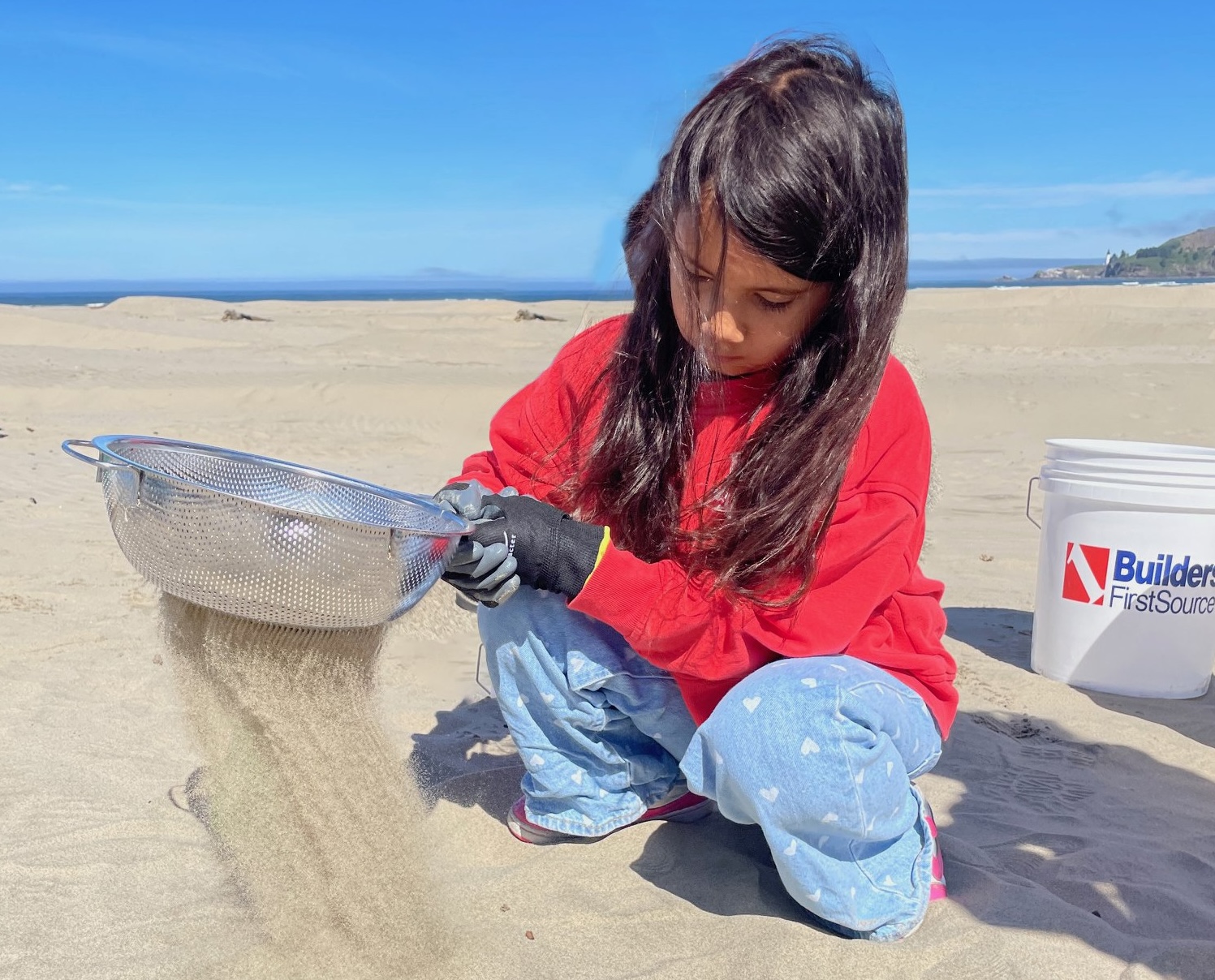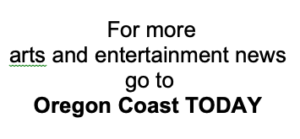
By ELIOT SEKULER/Oregon Coast TODAY
NEWPORT — Sailing on the wind and the sea, the tiny particles find their way into everything. Like a sci-fi movie plague, the worldwide buildup of microplastics – plastic scraps measuring less than 3/16 of an inch – is menacing the planet, permeating food, water and, as it breaks down further, the air we breathe.
 The plastic specks find their way into marine life, domestic animals and into our bodies where, according to the American Medical Association, they can potentially cause digestive, reproductive and respiratory problems.
The plastic specks find their way into marine life, domestic animals and into our bodies where, according to the American Medical Association, they can potentially cause digestive, reproductive and respiratory problems.
“Microplastics are everywhere,” said Guy Faust, Newport Rotary Club’s environmental services director. “They’ve been found on Mount Everest and at the bottom of the Mariana trench.”
Taking small steps to mitigate a very large problem, Faust and his Rotary colleagues hatched a plan to harness local volunteer and visitor labor in an effort to clean up some of the microplastic waste that pollutes our beaches.
The cleanup campaign was a natural fit for Rotary’s service objectives, which were expanded in the 1990s to include support for environmental protections.
“Every Rotary Club is asked to do ‘Something green’,” Faust said. “We thought we would see if we could get eco-friendly summer visitors to participate by doing four things — conserve water, conserve electricity, recycle waste and maybe even do some beach cleanup. And then we stumbled upon the idea of this microplastics project and that’s become our emphasis for a second year.”
The club’s microplastic cleanups take place daily from 10 a.m. to noon at Agate Beach in Newport through Sept. 7. For more information and to sign up, go to www.rotaryclubofnewport.org.
The Rotarians were able to secure a $10,000 grant from the city of Newport along with support from a variety of other local organizations and businesses. The money helped pay supervisors who led cleanups and for advertising to increase awareness of the effort, as communicating the existence of the project to both visitors and residents is one of the effort’s biggest hurdles. Further support for the program this year is already in the city’s 2025-26 budget.
Cleanup participants are directed to park at the Agate Beach Best Western Hotel, which is supporting the effort by allowing Rotary to use their loading dock and parking lot. They assemble at the adjacent beach and are instructed in the use of a sieve-like screen filter that captures the particles as beach sand is sifted through. When the filter becomes loaded with plastic, it’s tipped into five-gallon buckets for removal. It takes two people to hold the filter and another to shovel the sand, so the process becomes a group effort that requires a measure of teamwork.
“We discovered that it actually becomes kind of fun,” Faust said. “A friendly competition usually starts between the various teams.”
While seeking the participation of residents and visitors, Faust hopes to expand on the cleanup effort this year by offering incentives to volunteer groups for their participation. Newport’s Rotary Club will pay $100 to non-profit groups that muster 10 volunteers for the two-hour beach cleanups that will be held daily from 10 a.m. to noon at Agate Beach.
In addition to the $100, groups will receive a raffle ticket for their participation plus an additional ticket for each pound of microplastics they remove. A drawing for an additional $1,000 award will be held Dec. 4.
Participants come from a broad cross-section of the community. Volunteer teams have come from other service groups, such as the Yaquina Bay Altrusa organization, from business groups like the Lincoln County Realtors Association and from school groups, like the Newport high school cheerleaders and Lincoln City’s Taft Elementary School’s summer program. The groups participate as part of their overall service efforts or, in the case of Taft Elementary, incorporate them into creative projects.
Taft teacher Bianca Dale, who’s serving as the school’s coordinator for summer learning, arranged for her students to attend a presentation by Faust in mid-June and planned for them to participate in a July cleanup.
“Our summer learning is focused on the issue of pollution,” Dale said. “We’ve met with a number of environmental organizations as part of our program, and they’ve given our students great ideas on how to get involved. Our principal, Rebecca Bostwick, had a vision of turning marine debris into an art installation, so we’ll be working with the Lincoln City Cultural Center’s Krista Eddy on ways of using the microplastics we’ve collected and turning them into art.”
The students will be incorporating their haul of microplastic debris into a mural they’ll be working on through the summer.
“When the students learned about the issue, they became really involved, had great ideas and seemed very excited,” Dale said.
-
For more arts and entertainment news go to Oregon Coast TODAY




















